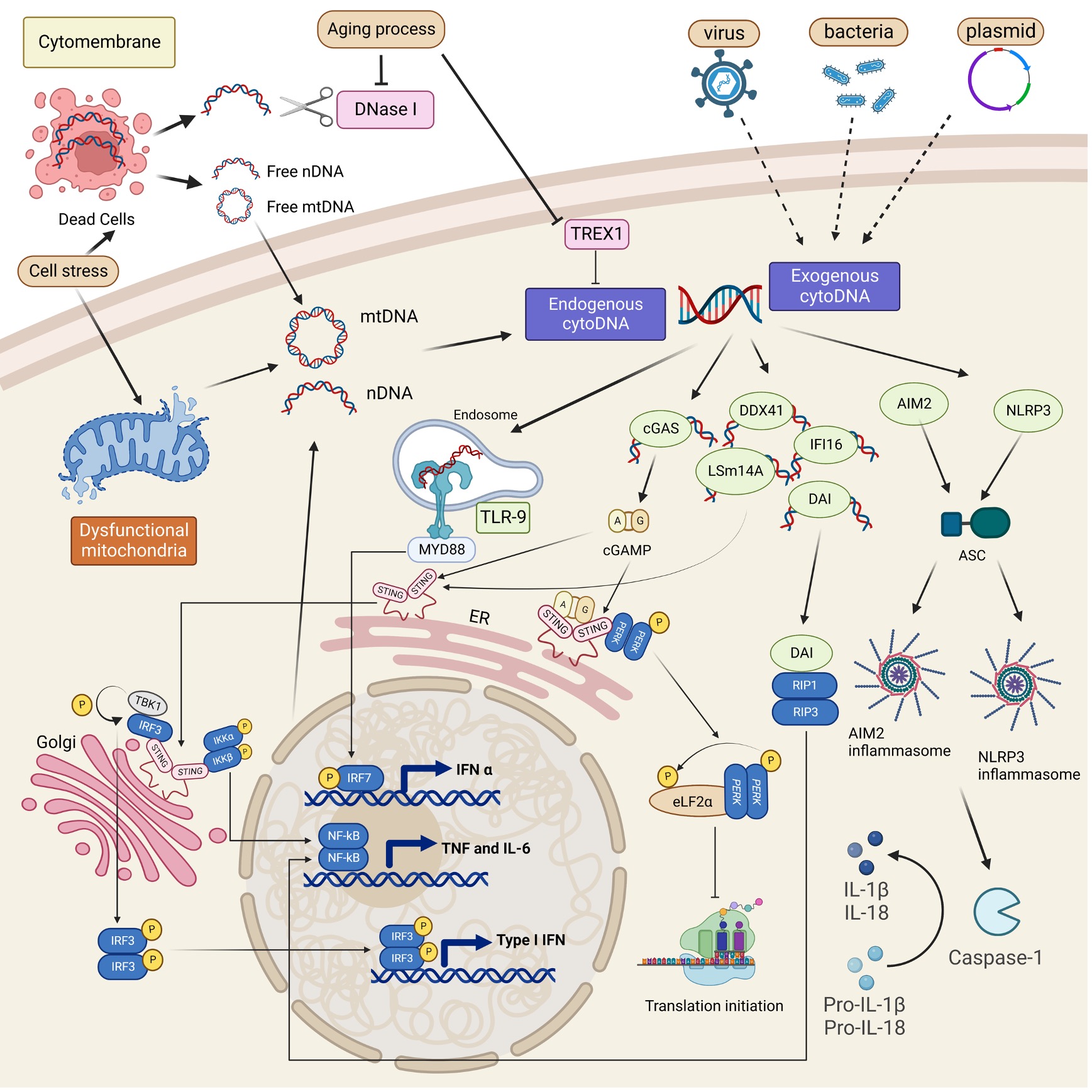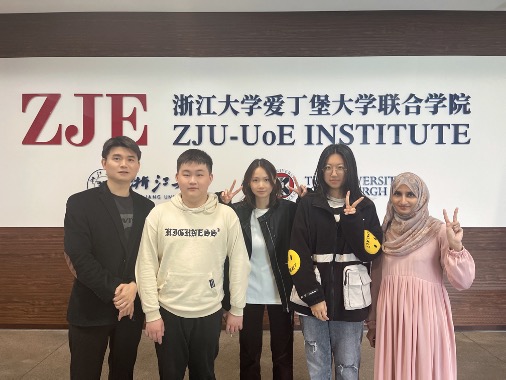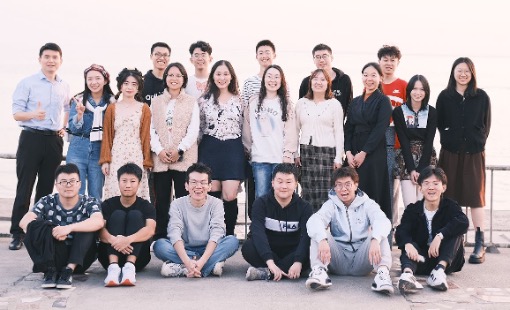Recently, a review article entitled "Cytoplasmic DNAs: sources, sensing, and roles in the development of lung inflammatory diseases and cancer" was published in Frontiers in Immunology (Official Journal of International Union of Immunological Societies (IUIS), JCR Q1 Journal) by a group of undergraduate students supervised by Jian Liu lab from Zhejiang University - University of Edinburgh Institute (ZJE). This review focuses on recent discoveries and advances in cytoplasmic DNA and its signaling pathways in inflammatory lung disease and lung cancer (Figure 1). The authors find that sustained activation of cytoplasmic DNA sensing pathways contributes to the development of common lung diseases, which can be caused by external factors or mutations in key genes in the body. The interaction of cytoplasmic DNA with anti-inflammatory or antitumor effects and its potential in immunotherapy are further discussed.

Mislocated cytoplasmic DNA will be induced by cytoplasmic sensors such as cGAS and inflammatory bodies to induce innate immune responses such as IFN response and inflammatory cell death. A growing number of studies have reported the role of such signaling pathways in the progression of common diseases, including pulmonary inflammatory disease and lung cancer. This article summarizes the latest research results of cytoplasmic DNA sensing in the progression of these lung diseases and proposes the corresponding immunotherapy methods. In addition, the role of pathogens and self-derived cytoplasmic DNA in the development of several types of pulmonary inflammatory diseases, such as COVID-19, has been described. More importantly, the authors note the important contribution of cytoplasmic DNA sensing in some specific genotypes of lung cancer, such as TP53 mutants. This provides a theoretical basis for the accurate treatment of lung cancer. In conclusion, the authors suggest that cytoplasmic DNA plays a crucial role in the progression of common lung diseases, and that its understanding could help explore more therapeutic strategies.
Professor Jian Liu is the corresponding author of this paper. He Xintong, Sun Ye and Lu Jianzhang are the co-first authors of this paper. Shenglin Ma is the co-corresponding author of this paper. Co-authors include Faiza Naz, a foreign doctoral student in Jian Liu's lab. Although undergraduate students of ZJE are always busy with their studies, it only took three months from drafting to finishing the article, and only six months from publication. This fully reflects the subjective initiative in research and self-learning ability of ZJE undergraduates. Moreover, these ZJE undergraduate students, the first authors of this publication, conducted some related research in Pro. Jian Liu’s lab, supported by the Zhejiang Province College Students Science and Technology Innovation Activity Plan (New Seedling Talent Program) in 2022.
About lab
Liu Jian's research group was founded in November 2020. Currently, its main research interests are tumor biology, AI multi-omics, and gene editing. At present, it focuses on studying the molecular mechanism of lung cancer (lung squamous cell carcinoma) by combining clinical database, transgenic mouse model, and various sequencing methods, aiming at promoting targeted therapy of lung cancer (lung squamous cell carcinoma). Established "groups of databases of lung cancer and other cancers (http://www.canceromics3d.net/ or http://www.lungcancer3d.net/)" and WeChat public account “肺鳞癌”.
The leader of the research group can be contacted at JianL@intl.zju.edu.cn
Lab website: https://person.zju.edu.cn/liujian; Recruit highly motivated postgraduates.

Photo of the authors

Jian's Lab







